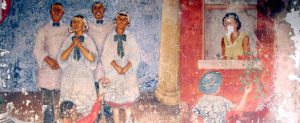Much of my research examines the relationship between medical anthropology and biomedicine in the United States, and I am especially interested in what happens when anthropology “goes public.”
My current book project, The Problem We All Live With: Cultural Competence and the Medical Management of Difference explores the way anthropological notions of culture, race, and difference are invoked in the development of “cultural competence” efforts in four intersecting areas of the health system: 1) health disparities research, in which cultural difference is identified as a cause of racial and ethnic health disparities and cultural competence is positioned as a common-sense solution; 2) medical education, where health professionals and educators struggle to impart the knowledge, skills, and attitudes that will produce culturally competent providers while avoiding the essentialized lists of traits that were common in the earliest cultural competence efforts; 3) managed care, where dual discourses of “civil rights” and “consumer rights” intersect as advocates make the “business case” for cultural competence; and 4) the day-to-day operation of a “Black-focused” psychiatric unit, where segregated health services are seen to be not only preferable, but necessary, in order to achieve an equality of care.
This research reflects both my concern with the politics of difference in the United States and my interest in the shifting relationship between medical anthropology and biomedicine, as anthropological critiques and concepts are increasingly incorporated in health care system with often unintended consequences.
Image credit: Georgette Seabrooke, “Recreation in Harlem” detail, 1937, mural for Harlem Hospital
